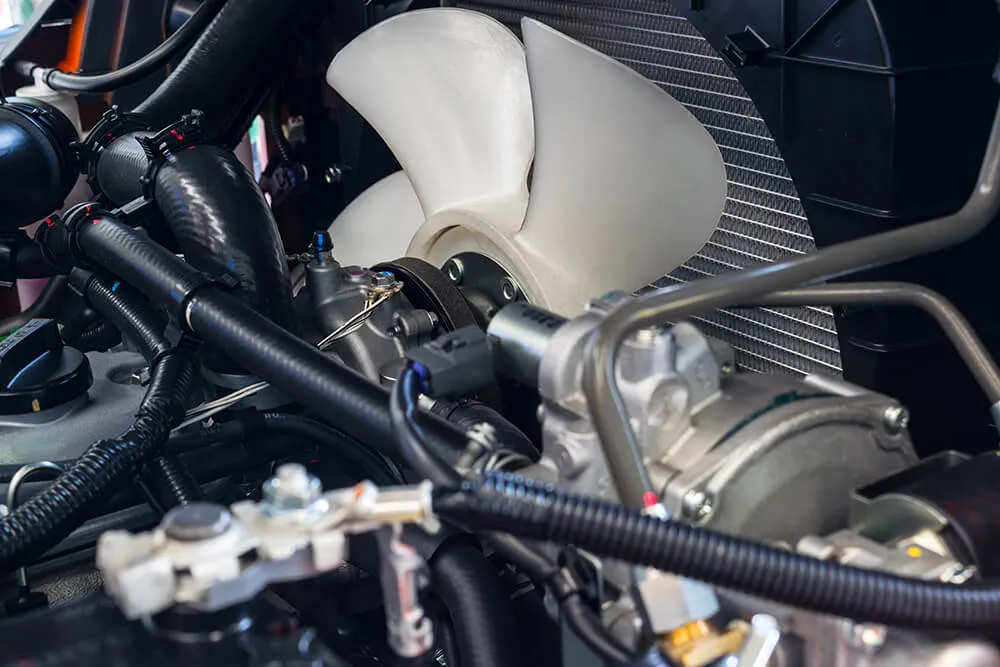Your vehicle’s cooling system is vital for maintaining optimal engine temperature and preventing overheating. From radiators to water pumps, each component plays a crucial role in keeping your engine cool and running smoothly. In this guide, we’ll explore the importance of cooling system repair and common issues to watch out for.
Understanding Your Vehicle’s Cooling System:
Your vehicle’s cooling system is comprised of several components, including the radiator, water pump, thermostat, hoses, and coolant. The radiator dissipates heat from the engine coolant, while the water pump circulates the coolant throughout the system. The thermostat regulates coolant flow to maintain the ideal engine temperature.
Signs of Cooling System Issues:
- Engine overheating: If your engine temperature gauge is in the red or you notice steam coming from under the hood, it’s a sign of potential cooling system issues.
- Coolant leaks: Puddles of coolant under your vehicle or visible leaks around hoses, connections, or the radiator indicate a coolant leak.
- Low coolant level: If you frequently need to top off your coolant reservoir, there may be a leak in the system or a malfunctioning component.
- Heater issues: A lack of heat from your vehicle’s heater can indicate a problem with the cooling system, such as a blocked heater core or low coolant level.
- Strange smells: A sweet smell inside the vehicle or under the hood could indicate a coolant leak.
Importance of Cooling System Repair:
Ignoring cooling system issues can lead to engine damage and costly repairs. Overheating can cause cylinder head gasket failure, warped cylinder heads, and even engine seizure. Regular cooling system maintenance and prompt repairs are essential for preserving engine performance and longevity.
Cooling System Repair Services:
- Coolant flush and refill: Flushing the cooling system removes old coolant and contaminants, ensuring proper cooling system function.
- Radiator repair or replacement: Damaged or leaking radiators can compromise cooling system efficiency and should be repaired or replaced as needed.
- Water pump replacement: A malfunctioning water pump can lead to inadequate coolant circulation and engine overheating.
- Thermostat replacement: A stuck thermostat can cause overheating or inefficient heating in the cabin and should be replaced promptly.
- Hose and belt inspection: Hoses and belts should be inspected regularly for signs of wear or damage and replaced as needed to prevent leaks or failures.
Your vehicle’s cooling system is essential for maintaining engine temperature and preventing overheating. By staying vigilant for signs of cooling system issues and addressing them promptly, you can avoid costly repairs and keep your engine running smoothly. If you’re experiencing any cooling system problems, don’t hesitate to schedule an appointment with our experienced technicians. We’ll diagnose the issue and provide the necessary repairs to keep your vehicle running cool and reliable.

